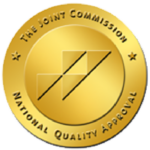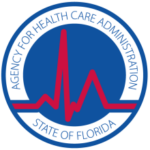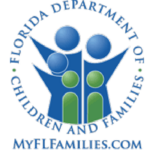If you or a loved one is suffering, please contact us today.
There are hundreds of mental health and substance abuse treatment centers in operation across the United States. In name, each of these centers shares the same goal: provision of effective treatment for people seeking to recover from substance addiction and mental illness. However, in reality, a significant percentage of treatment centers fail to offer a standard of care that puts this goal within reach.
To ensure the quality of available care and help potential patients make smart choices, several prominent organizations issue their seal of approval through a certification process called accreditation. Programs seeking certification can only qualify by meeting an organization’s professional standards. Accreditation is a mark of a treatment program’s commitment to excellence. It also allows patients and third-party referrers to compare programs across key areas such as quality, consistency of care, long-term effectiveness, patient satisfaction, and cost. In addition, in some markets, certification from an accrediting body is becoming a prerequisite for eligibility for insurance reimbursement, participation in managed care plans and contract bidding.
Transformations Treatment Center is proud to hold accreditation from one of the nation’s most esteemed healthcare-related organizations, the Joint Commission. As a Florida-based facility, we also hold licenses from the Florida Agency for Health Care Administration and the Florida Department of Children and Families.

Founded in 1951, The Joint Commission seeks to continuously improve health care for the public, in collaboration with other stakeholders, by evaluating health care organizations and inspiring them to excel in providing safe and effective care of the highest quality and value. The Joint Commission accredits and certifies nearly 21,000 health care organizations and programs in the United States. An independent, nonprofit organization, The Joint Commission is the nation’s oldest and largest standards-setting and accrediting body in health care. To earn and maintain The Joint Commission’s Gold Seal of Approval®, an organization undergoes an on-site survey by a Joint Commission survey team at least every three years.
If you would like to report concerns about the safety and quality of care of the individual served please click HERE to report to The Joint Commission.
The Joint Commission’s standards and emphasis on clinical practice guidelines help organizations establish a consistent approach to care, reducing the risk of error. Certification standards help organize the disease management program. This helps to maintain a consistently high level of quality, using effective data-driven performance improvement. Certification provides an opportunity for staff to develop their skills and knowledge. Achieving certification provides the clinical team with common goals and a concrete validation of their combined efforts.
Joint Commission reviewers have significant experience evaluating disease management programs. They are trained to provide expert advice and education on good practices during an on-site review. Organizations must demonstrate the ability to provide treatment that addresses the health needs of the whole person, potentially improving overall satisfaction with the care experience.
Organizations undergo a rigorous on-site survey. During the review, a Joint Commission expert surveyor evaluates compliance with standards relating to key concepts of person-centered health care to support recovery and resilience philosophies. Meeting Joint Commission standards is an accomplishment recognized with the awarding of The Joint Commission’s Gold Seal of Approval™. Certified organizations proudly display the Gold Seal to demonstrate their commitment to health care quality.
Achieving certification makes a strong statement to the community about an organization’s efforts to provide the highest quality services. Clients can feel assured that they are choosing a reputable institution when it is Joint Commission Certified.
Accreditation is a sign of quality and is an important consideration for clients in their decision-making. Accreditation allows clients and referrers to compare programs on key areas such as durability of outcomes, cost-effectiveness, quality and consistency of care, patient satisfaction, qualifications of staff and all the other factors that influence a referral choice. In some markets, certification is becoming a prerequisite to eligibility for insurance reimbursement, or participation for managed care plans and contract bidding.

The Agency for Health Care Administration (AHCA) certifies and regulates over 48,000 providers in the State of Florida and provides informations about the quality of care received. AHCA is responsible for the administration of the Florida Medicaid program, licensure and regulation of Florida’s health facilities. They license and regulate not only treatment centers but also hospitals, nursing homes, assisted living facilities, home health agencies and ambulatory surgery centers.

DCF The Substance Abuse and Mental Health (SAMH) Program is responsible for the oversight of a statewide system of care for the prevention, treatment, and recovery of children and adults with serious mental illnesses or substance abuse disorders.
The Substance Abuse and Mental Health Program Office is responsible for oversight of the licensure and regulation of all substance abuse providers in the state. Licensure functions are implemented by staff of SAMH Program Offices at the local levels throughout the state. The provision of substance abuse services is governed by Chapters 394 and 397 of the Florida Statutes, which provide direction for a continuum of community-based services including prevention, treatment, and detoxification services.
Licensure Services are required to administer and maintain a comprehensive regulatory process to license service providers and professionals who provide substance abuse services to individuals and families who are at risk of or challenged by substance abuse. This licensure process is governed and regulated by Chapter 397, F.S., and Chapter 65D-30, Florida Administrative Code (F.A.C.). Minimum standards for licensure are specified for the following program components: addictions receiving facilities, detoxification, intensive inpatient treatment, residential treatment, day or night treatment with host homes, day or night treatment with community housing, day or night treatment, intensive outpatient treatment, outpatient treatment, continuing care, intervention, prevention, and medication-assisted treatment for opiate addiction. Specific criteria must be met in order for an agency to receive a license for any of these program components.